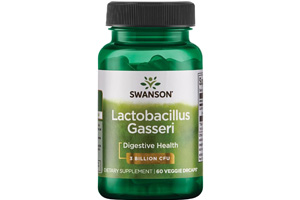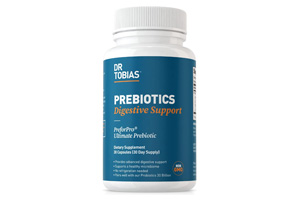Affiliate Disclaimer
Some links in this article are affiliate links. We may earn a small commission if you make a purchase through these links, at no extra cost to you. We only recommend products we find useful to our readersMaintaining gut health is not just a matter of efficient digestion, it is also essential for strengthening the immune system and for promoting mental wellness. The value of digestive health has increasingly come to light in recent years. However, many of us still commit common mistakes that might undermine our attempts to have a happy and healthy gut.
In this article we aim to review these errors and offer advice on how to avoid them, so you can proactively improve the health of your gut and, by extension, your general well-being.
1. Ignoring Fiber Intake

When it comes to gut health, one of the most common mistakes individuals make is not including enough fiber in their meals. Dietary fiber is essential for maintaining regular bowel movements and nourishing healthy bacteria in our digestive tract.
A diet high in fiber is beneficial to digestive health because it increases the volume of stool, making it easier to pass and helps prevent constipation. In addition, fiber acts as a prebiotic, providing nourishment to the beneficial bacteria that contribute to maintenance of a healthy microbiome in the gut. Ignoring this crucial aspect of your diet can lead to digestive issues and compromise your overall well-being.
Include fiber-rich foods into your diet, such as fruits, vegetables, legumes, and whole grains. Recommended daily fiber intake for women is around 25 grams and 38 grams for men. By including a wide range of these fiber-rich foods in your diet, you can dramatically improve the health of your digestive tract.
2. Overusing Antibiotics

Antibiotics are necessary for treating bacterial illnesses, but they disrupt the gut microbiome and have a detrimental impact on the balance of gut bacteria. Gut microbiomes can become compromised due to this imbalance, which in turn reduces its capacity to promote digestion, immunity, and overall health.
The overuse of antibiotics without a need or failing to follow the authorized course of treatment exacerbates this problem and promotes antibiotic resistance. Further, it harms the bacteria that live in the gut.
Before using antibiotics, it is essential to get the advice of a qualified medical practitioner and follow their instructions strictly. In addition, taking probiotics both during and after antibiotic therapy can assist in restoring the balance of the gut, thereby restocking the beneficial bacteria and promoting a healthier microbiome.
3. High Sugar Consumption

Excessive sugar intake encourages the growth of harmful bacteria in the gut, which results in an imbalance in the gut microbiome. It is common for this imbalance to result in gut inflammation, which further compromises the health of the digestive system and overall well-being.
Consuming excessive sugary foods and beverages is a typical error many people make, and they frequently do so without being aware of the possible damage it can cause to their digestive tract.
To safeguard the health of the digestive tract, it is vital to cut back on sugar consumption and choose healthier alternatives, such as fruits, vegetables, and whole cereals. Modify your diet to preserve a healthy microbiome in the gut, reduce inflammation, and improve digestive health.
Health Spectra Recommended Articles:
- 15 Ways to Stop Eating Lots Of Sugar – Manage Your Sweet Tooth!
- 11 Reasons Why Sugar Is Bad For You – Take A Look At Its Ill-Effects!
- What Happens When You Stop Eating sugar?
4. Lack of Probiotics

Not including a sufficient amount of foods that are rich in probiotics in one’s diet is a common mistake. Probiotics introduce helpful bacteria that bolster digestion, strengthen immunity, and improve general well-being.
Consume fermented foods like yogurt, kefir, kimchi, sauerkraut, and kombucha, which are good sources of probiotics, and essential to restoring and maintaining a healthy balance of bacteria in the gut. A lack of fermented foods is linked to an imbalance in the gut microbiome. Consuming fermented foods on a consistent basis is necessary to ensure that one receives an adequate amount of probiotics.
You may also consider taking probiotic supplements, such as lactobacillus or bifidobacterium.
Including probiotics in your diet is an important step to building a healthy and balanced gut microbiome.
5. Inadequate Hydration

The importance of hydration cannot be overstated when it comes to supporting digestive health. Many of us do not drink enough water during the day. Drinking enough water is important since it helps soften the stool and promotes regular bowel movements, all of which contribute to the smooth functioning of the digestive system.
Consume at least eight glasses of water daily, and consider additional hydration options such as herbal teas. You can boost the amount of water you consume by carrying a water bottle, setting reminders to drink, and consuming foods that are high in water content, such as fruits and vegetables.
HS Recommended Articles:
- Home Remedies for Dehydration
- 13 Health Benefits Of Cucumber Water
- 16 Unexpected Benefits Of Drinking Hot Water That You Didn’t Know Of
6. Neglecting Stress

Stress and digestion are intricately connected, and the gut-brain connection plays a key role in maintaining gut health. Chronic stress disrupts this connection and leads to digestive problems such as Irritable Bowel Syndrome (IBS). One of the most common errors that people make is ignoring chronic stress, which can make gastrointestinal problems worse.
Incorporate stress management strategies into your daily routine. Mindfulness, yoga, and regular exercise are all practices that have the potential to successfully reduce stress levels and support a healthy link between the gut and the brain.
Read More About Stress Management
- Top 5 Stress-Busting Tips Every Man Needs in His Life
- 20 Stress Relieving Foods Help You Reduce It Instantly- Must Know!
- Spirituality For Stress Relief ! What’s The Tie-In? Awaken Your Mind!
7. Ignoring Food Sensitivities

Sensitivities and intolerances to food can cause inflammation in the stomach and lead to digestive tract discomfort. Consuming troublesome foods and disregarding indications such as bloating, gas, and stomach pain, is a common mistake many of us make.
To address the issue, recognize the symptoms and steer clear of any triggers. Keep a food diary to note you eat and any related symptoms.
In addition, an elimination diet, which involves removing foods that have the potential to induce an allergic reaction and then gradually reintroducing them, might assist in determining food sensitivities.
Read more about: Elimination Diet – Benefits, Tips, Foods And Side Effects
8. Skipping Meals

The failure to prioritize meal regularity is a common mistake that, over time, can have a detrimental effect on the gut’s health. Maintaining regular meal patterns is necessary, as skipping meals can cause digestive problems such as bloating, gas, and irregular bowel movements. Skipping meals may also result in overeating later, which can strain the digestive system, contribute to weight gain, and cause metabolic imbalances.
Maintaining a regular eating schedule that includes well-balanced meals is necessary to support your digestive system. The regulation of digestion, the maintenance of stable blood sugar levels, and the promotion of a healthier gut are all benefits of eating at regular breaks.
9. Lack of Prebiotics

A typical mistake many of us make is to consume insufficient foods that are rich in prebiotics, which can result in an imbalance of bacteria in the gut and harm the gut’s health. Prebiotics foster a healthy microbiome and provide nourishment to the bacteria that live in the gut. These non-digestible fibers serve as food for beneficial bacteria in your gut, allowing them to flourish and create an environment conducive to healthy gut ecology.
Incorporate fiber-rich, prebiotic foods such as onions, garlic, bananas, and asparagus into your diet to promote the growth of healthy bacteria and improve the health of your digestive system.
You may also consider adding a prebiotic supplement to your daily routine.
10. Overeating and Poor Eating Habits

Bad eating habits and excessive eating can cause considerable damage to the digestive system, resulting in complaints such as bloating, indigestion, and pain. When a significant quantity of food is consumed in a single sitting, the digestive system becomes overwhelmed, making it difficult for the body to process and absorb nutrients effectively. In addition, eating too quickly and not chewing properly contributes to the escalation of these issues and increases stress on the digestive tract.

Mindful eating, which involves paying complete attention to the experience of eating, might be beneficial. Implement portion control, take the time to chew each bite thoroughly, and enjoy each meal to enhance digestion and prevent overeating.
Read More: 20 Ways To Stop Overeating – Get Rid Of The Unnecessary Addiction
Conclusion:
Avoiding these common mistakes can dramatically improve the health of your digestive system, and help you avoid potential harm to the microbiota in your gut and various digestive problems.
Promote a balanced and healthy gut by adopting healthier behaviors and making choices based on accurate nutritional information. Focus on including fiber into your diet, avoid overusing antibiotics, reduce sugar intake, make probiotics, prebiotics, and hydration a daily priority, manage stress level and food sensitivities, and eat at regular intervals.
Continue your journey toward greater digestive wellness and overall health, read on for additional ideas and information on gut health.
References
- https://carriereedy.com/5-common-mistakes-when-trying-to-improve-gut-health/
- https://www.wellandgood.com/gut-health-mistakes/
- https://rightnutritionworks.com/gut-health/improving-gut-health-mistakes/
- https://timesofindia.indiatimes.com/life-style/health-fitness/health-news/avoid-these-common-mistakes-to-have-a-healthier-gut/articleshow/103911607.cms
- https://edit.sundayriley.com/mistakes-that-could-be-costing-you-gut-health/
- https://sg.news.yahoo.com/style/3-biggest-mistakes-people-trying-080101281.html
- https://www.healthline.com/health/gut-health
- https://www.ama-assn.org/delivering-care/public-health/what-doctors-wish-patients-knew-about-improving-gut-health
- https://functionalnutritionresources.com/functional-medicine-gut-health-mistakes/
- https://www.evienutrition.co.uk/3-common-mistakes-that-are-making-your-gut-health-worse
- https://www.4pointshealth.com/post/the-top-10-mistakes-people-make-when-trying-to-eat-healthily
- https://www.mayoclinic.org/healthy-lifestyle/consumer-health/in-depth/antibiotics/art-20045720
- https://www.medicalnewstoday.com/articles/326256
- https://www.pcrm.org/health-topics/gut-bacteria
- https://www.ncbi.nlm.nih.gov/pmc/articles/PMC7791407/
- https://nypost.com/2023/09/08/10-nutrition-mistakes-that-are-taking-years-off-your-life/
- https://drwillcole.com/functional-medicine/the-1-mistake-youre-making-when-eating-for-gut-health
- https://www.piedmont.org/living-real-change/10-tips-for-a-healthier-gut
- https://charlestongi.com/news&events/10-tips-for-improving-gut-health/
- https://www.mind.org.uk/information-support/tips-for-everyday-living/food-and-mental-health/
In this Article






















